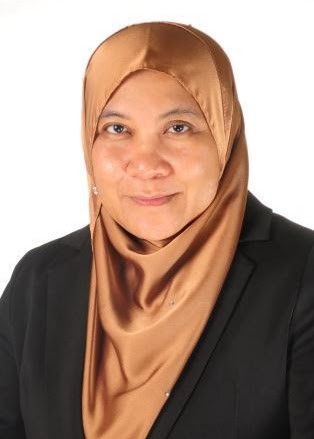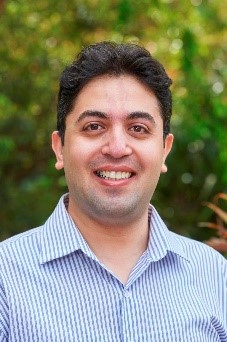ICCSC 2024
Keynote Speakers

Assoc. Prof. Dr. Suraya Masrom
Murdoch University, Australia
Short Bio: Associate Professor Ts Dr. Suraya Masrom holds a Doctor of Philosophy in Information Technology and Quantitative Sciences from Universiti Teknologi MARA (UiTM) obtained in 2015. She also earned her Master of Computer Science from Universiti Putra Malaysia in 2001 and her Bachelor and Diploma in Computer Science from Universiti Teknologi Malaysia in 1996 and 1994, respectively. She began her academic career as a young lecturer in 1998, demonstrating a strong commitment to education and research. Over the years, she has progressed through various academic ranks, becoming an Associate Professor in 2019. Her teaching portfolio is extensive, covering a wide range of subjects, including Algorithm Analysis and Design, Fundamentals of Data Structures, Computer Security, and numerous other courses across undergraduate and postgraduate levels. In the realm of research, Dr. Suraya's interests are both diverse and impactful, with a focus on Big Data, Machine Learning, and Optimization. As the Head of the Machine Learning and Interactive Research Group (MaLIV) from 2020 to 2023, she spearheaded initiatives that pushed the boundaries of machine learning applications and data analytics. Her role as Chairman of the Big Data Task Force and Director of Big Data Talent further highlights her leadership in advancing big data competencies, where she facilitated training and certification programs in Cloudera, Hadoop, Python, and Machine Learning. A significant area of Dr. Suraya's research is metaheuristics-based optimization. She has conducted in-depth studies on algorithms such as Particle Swarm Optimization, Evolutionary Algorithms, and Bee Colony Optimization, applying these to solve complex optimization problems across various domains. Her pioneering work in this field has significantly contributed to optimizing machine learning pipelines, enhancing model performance, and efficiency—a critical advancement in the field of artificial intelligence.

Assoc. Prof. Dr. Philip W. T. Pong
New Jersey Institute of Technology, United States of America
Short Bio: Philip W. T. Pong received a B.Eng. from the University of Hong Kong (HKU) with 1st class honours. Then he obtained a PhD in engineering at the University of Cambridge. He was a postdoctoral researcher at the Magnetic Materials Group at the National Institute of Standards and Technology (NIST) for three years. Currently he is an Associate Professor in the Department of Electrical and Computer Engineering at New Jersey Institute of Technology (NJIT). His research interest focuses on the fault detection, predictive maintenance, and anomaly detection of power grid. He is the Founding Director of the Green Technology Research and Training Laboratory, leading the research and education activities of offshore wind energy at NJIT. Philip Pong is a Fellow of the Institution of Engineering and Technology (FIET), a Fellow of the Institute of Physics (FInstP), a Fellow of the Energy Institute (FEI), a Fellow of the Institute of Materials, Minerals and Mining (FIMMM), a Fellow of the Hong Kong Institution of Engineers (FHKIE), a Fellow of the NANOSMAT Society (FNS), a chartered physicist (CPhys), a chartered engineer (CEng), a chartered energy engineer, a registered professional engineer (R.P.E. in Electrical, Electronics, Energy), and a Senior Member of IEEE (SMIEEE). He serves on the editorial boards for several IEEE and SCI journals.

Assoc. Prof. Dr. Farhad Shahnia
Murdoch University, Australia
A/Professor Farhad Shahnia received his PhD in Electrical Engineering from Queensland University of Technology (QUT), Brisbane, in 2012. He is currently an A/Professor at Murdoch University. Before that, he was a Lecturer at Curtin University (2012-15), a research scholar at QUT (2008-11), and an R&D engineer at the Eastern Azarbayjan Electric Power Distribution Company, Iran (2005-08). He is currently a Fellow member of Engineers Australia, Senior Member of IEEE, and member of the Australasian Association for Engineering Education. Farhad’s research falls under Distribution networks, Microgrid and Smart grid concepts. He has authored one book and 11 book chapters and 250+ peer-reviewed scholarly articles in international conferences and journals, as well as being an editor of 6 books. Farhad has won 5 Best Paper Awards in various conferences and has also received the IET Premium Award for the Best Paper published in the IET Generation, Transmission & Distribution journal in 2015. One of his articles was listed under the top-25 most cited articles in the Electric Power System Research Journal in 2015 while one of his 2015 journal articles has been listed under the top-5 most read articles of the Australian Journal of Electrical and Electronics Engineering. He was the recipient of the Postgraduate Research Supervisor Award from Curtin University in 2015 and the Australia-China Young Scientist Exchange Award from the Australian Academy of Technology and Engineering in 2016. Farhad is currently a Subject Editor, Deputy Subject Editor, and Associate Editor of several journals including IEEE Access, IET Generation, Transmission & Distribution, IET Renewable Power Generation, IET Smart Grid, IET Energy Conversion and Economics, and International Transaction on Electrical Energy Systems and has served 40+ conferences in various roles such as General, Technical, Program, Publication, Publicity, Award, Sponsorship, and Special Session Chairs. Farhad has led the IEEE Western Australia Section as the 2020-2021 Chair, and was the 2019 Founding Chair of the IEEE Western Australia Industrial Electronics Society (IES) Chapter. He was the 2023 Vice-chair of the IES’s Technical Committees on Smart Grids.



